Unitree R1: Redefining Humanoid Robotics
Unitree R1 is a next-generation humanoid robot designed for real-world mobility, agility, and research. Weighing just ~25 kg, it features 26 degrees of freedom for full-body articulation and performs dynamic actions like running, cartwheels, and handstands. With built-in sensors, stereo vision, and developer-friendly integration, the R1 is ideal for robotics labs, AI training, and cutting-edge demonstrations.
A Movement-First Humanoid Built for Interaction and Innovation
The Unitree R1 stands out with its dynamic, movement-first architecture, enabling it to perform advanced acrobatic maneuvers like handstands, spin-kicks, and running bursts—capabilities rarely seen in humanoid robots within its class. Engineered for human-robot interaction (HRI), R1 can recognize faces, follow hand gestures, and respond to both verbal and visual commands, making it an ideal companion for real-time engagement. Beyond its physical prowess, the R1 serves as a versatile platform for research, teaching, and intelligent system prototyping, especially in academic institutions, AI labs, and robotics incubators. While not designed for industrial load-bearing or factory-level deployment, its purpose lies in embodied intelligence, mobility, and social interaction, offering developers and researchers a powerful testbed for next-generation human-machine collaboration.
Integrated with a Large Multimodal Model for voice and images
Powered by a large multimodal model capable of processing both voice and image inputs, enabling natural and adaptive interaction. Its fully open control interfaces for joints and sensors, combined with compatibility with mainstream simulation platforms, allow developers to seamlessly transfer algorithms from virtual testing environments into real-world operation.
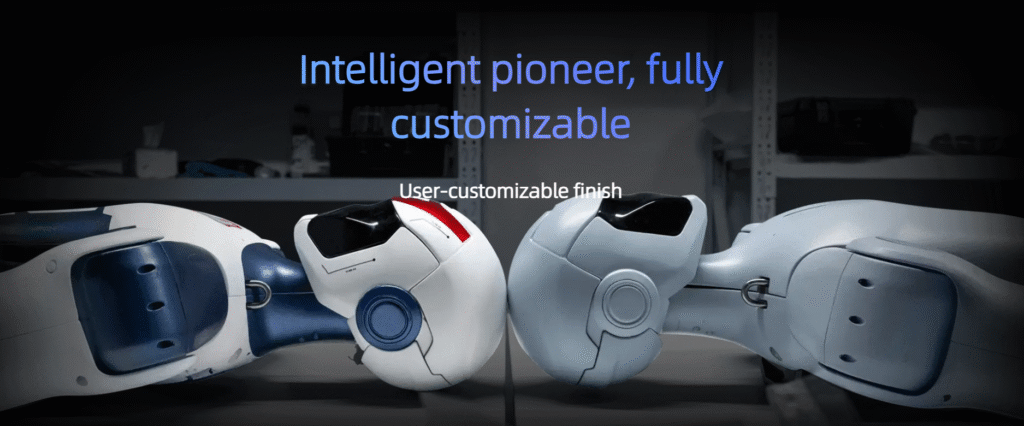
Unitree R1 Parameter
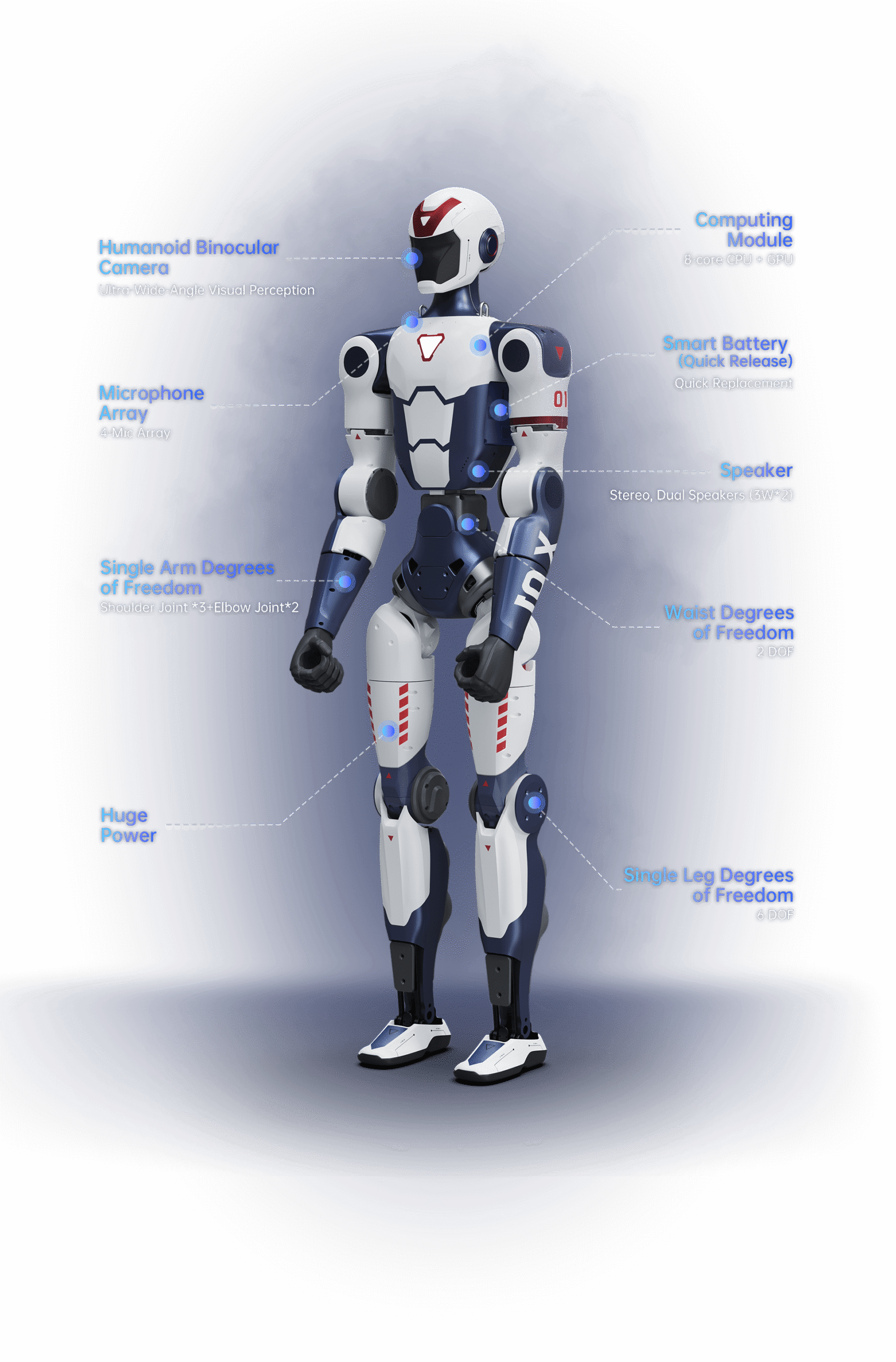
Lightweight, agile humanoid robot designed for education, research, prototyping, and interactive demonstrations. Standing at around 121 cm and weighing just 25 kg, it features 26 degrees of freedom, advanced mobility for acrobatic movements, and an onboard multimodal AI that processes both voice and vision inputs. With face and object recognition, multiple sensors, open SDK support, and up to 2 hours of battery life, the R1 offers a versatile and developer-friendly platform for exploring the future of human-robot interaction.
Specification's
Unitree R1 Specifications
| Specification | Details |
|---|---|
| Height | ~121 cm |
| Weight | ~25 kg |
| Degrees of Freedom (DOF) | 26 joints (arms, legs, torso, head) |
| Material | Lightweight alloy and composite frame |
| Mobility | Running, cartwheels, handstands, spin-kicks, punches |
| Speed | Jogging speed (exact data not officially disclosed) |
| AI | Onboard multimodal LLM (voice + vision AI) |
| Voice Recognition | Yes – natural language commands |
| Image Recognition | Yes – face and object detection |
| Sensors | Multiple cameras and depth sensors |
| Battery | Rechargeable lithium-ion (1–2 hours estimated runtime) |
| Charging | Fast-charging system |
| SDK & APIs | Open SDK for developers |
| Connectivity | Wi-Fi and Bluetooth |
| Use Cases | Education, research, prototyping, light service roles |
FAQ's
What is the weight and height of the Unitree R1?
Weighs approximately 25 kg and stands around 121 cm tall, making it lightweight and easy to maneuver.
What kind of movements can the Unitree R1 perform?
It can run, perform cartwheels, handstands, spin-kicks, and punches, showcasing impressive agility for a humanoid robot.
Does the it have AI capabilities?
Yes, it features an onboard multimodal large language model (LLM) capable of processing both voice and vision inputs for interactive and adaptive performance.
Can it recognize faces and objects?
Yes, it includes image recognition technology that supports face and object detection, enabling human-robot interaction.
How long does the battery last?
The rechargeable lithium-ion battery offers an estimated runtime of 1–2 hours, depending on usage.
How is the Unitree R1 charged?
It features a fast-charging system for quick turnaround between uses.
Is the Unitree R1 suitable for industrial work?
No, it is not intended for heavy-duty industrial tasks. It is designed for education, research, prototyping, and light service roles.
Can developers create custom applications for the Unitree R1?
Yes, it offers an open SDK and APIs for developers, making it highly customizable.
What connectivity options does it have?
It supports Wi-Fi and Bluetooth for seamless integration with other systems and devices.
Who is the Unitree R1 ideal for?
It is best suited for educational institutions, robotics labs, AI research, interactive demonstrations, and light service applications.




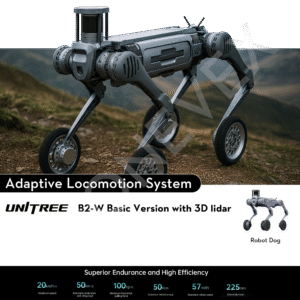
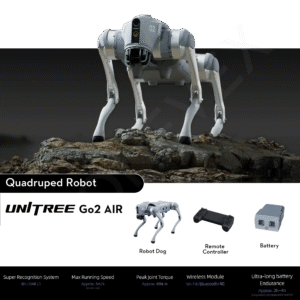
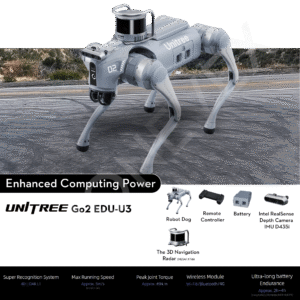
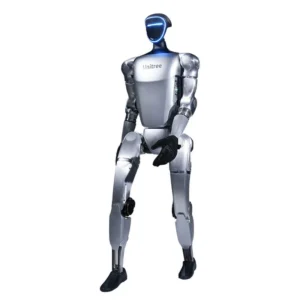

Reviews
There are no reviews yet.